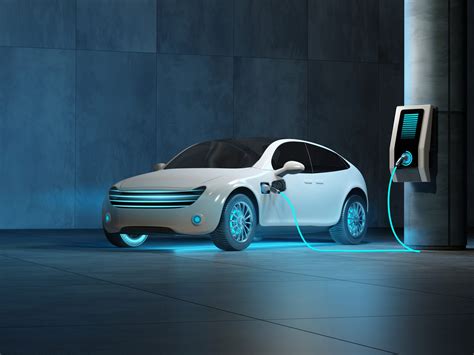Ghana’s transportation industry has contributed significantly to greenhouse gas emissions throughout the years, leading to premature mortality and health problems, including asthma. To lessen its influence on the environment and take advantage of the opportunities brought about by the changing transportation scene, Ghana created an electric vehicle policy to lower its carbon footprint.
The goal of the policy was to keep Ghana from turning into a landfill for old gasoline and diesel cars. The National Electric Vehicle Policy was launched in 2023 to assist in the decarbonization of the transportation industry and establish favorable conditions to promote the use of electric vehicles in Ghana. Ghana has joined hands with more than 70 countries, including China, the US, and the EU, in aiming for net-zero emissions.
Statistics
Reports indicate that the worldwide electric vehicle (EV) stock expanded from 400,000 units in 2013 to 16.4 million units in 2021. The International Energy Agency (IEA) forecasts that light-duty plug-in electric vehicles (PEVs) will reach 140 million by 2030, and electric two and three-wheelers will reach 490 million in the same period. According to the 2022 Ghana Electric Vehicles Baseline Survey Report by the Energy Commission, approximately 17,660 plug-in electric vehicles were imported into Ghana between January 2017 and December 2021.
Additionally, during this period, Ghana imported 9,431 motorized electric two and three-wheelers, with a significant proportion (98%) of Battery Electric Vehicles (BEVs) originating from China. In 2021, the Ghana Revenue Authority (GRA) reported that standard hybrid-electric vehicles (HEVs) constituted the largest share (91.5%) of total electric vehicle imports, followed by Battery Electric Vehicles at 5.1%, and plug-in hybrid electric (PHEVs) at 3.3%.
Current state of EV adoption in Ghana
With few EVs on the road and a sparse infrastructure for charging them, Ghana’s EV adoption is still in its infancy. Due to several obstacles and difficulties that prevent their widespread adoption, EV adoption in the nation seems to be gradual. Ghana’s adoption of EVs is now hampered by some obstacles. These include:
Limited charging infrastructure
One major obstacle to Ghana’s EV adoption is the absence of a robust and extensive charging infrastructure. EV owners find it difficult to drive long distances or to rural areas due to the nation’s small number of charging stations, which are primarily located in urban areas.

High upfront costs
Another significant obstacle to EV adoption in Ghana is their higher initial prices as compared to traditional automobiles. The average customer finds EVs less accessible due to the country’s limited supply of reasonably priced EV models and the hefty import taxes and levies.
Limited Consumer awareness
The deployment of EVs in Ghana is further hampered by low consumer perception and understanding of them. Many buyers may be worried about the dependability, range, and resale value of EVs since they are not aware with their advantages and performance. It is imperative to address these misconceptions and raise public knowledge in order to encourage the nation’s EV adoption.
However, there are several benefits EVs have brought to Ghanaians. Some of these are:
Job creation
Opportunities for job creation have been created by the adoption of EVs, especially in the production, assembly, and maintenance of EVs, which can boost economic growth and lower unemployment rates.
Reduced dependence on fossil fuels
Ghana’s reliance on imported fossil fuels, which presently contribute significantly to the nation’s energy consumption and greenhouse gas emissions, has been lessened thanks to EVs. Ghana is lowering its import costs, increasing energy security, and lessening the environmental effects of transportation by switching to EVs.
Lower operating and maintenance costs
Because they are more efficient and have fewer moving parts than traditional cars, EVs are less expensive to operate and maintain. Throughout the vehicle’s life, this has led to significant cost savings for EV owners, increasing its long-term economic appeal.
Environmental benefits and reduced emissions
Particularly in cities where mobility is a significant source of air pollution, EVs can help Ghana improve air quality and lower greenhouse gas emissions. Ghana may advance its goals for mitigating the effects of climate change and enhance public health by encouraging the use of electric vehicles.
Recommendations
Establishing charging infrastructure
It is essential to set up infrastructure for charging. Ghana must provide a strong network of charging stations in both urban and rural locations to allay EV consumers’ concerns about range and promote broad adoption. Government, business, and international cooperation can hasten the installation of charging infrastructure across the country.

Bridging the maintenance skills gap
Partnerships with global organizations and automakers can support knowledge-sharing and capacity-building programs to close the maintenance skills gap and enable local personnel to perform EV repairs with expertise. Furthermore, encouraging EV manufacturers to set up service facilities and training centers in Ghana can improve local knowledge and generate job opportunities.
Providing incentives to support EV adoption
To promote the broad use of electric vehicles (EVs), the Ghanaian government should introduce some programs and incentives. These should include requirements for EV adoption in public and private fleets, preferential power pricing for EV charging, tax exemptions for EV imports and purchases, and subsidies for the construction of charging infrastructure. These policies will lower operating costs, promote private sector investment, lower the cost of EVs, and boost market expansion.
Conclusion
Although Ghana’s adoption of electric vehicles (EVs) offers a great chance to move toward a more resilient, sustainable, and clean transportation system, the nation still faces several obstacles that prevent EV adoption from being widely accepted, including a lack of adequate charging infrastructure, high tariff costs, low consumer awareness, and many other issues. Through targeted investments and cooperative efforts, Ghana may overcome these obstacles and become a pioneer in environmentally friendly transportation while promoting equitable socioeconomic growth.




